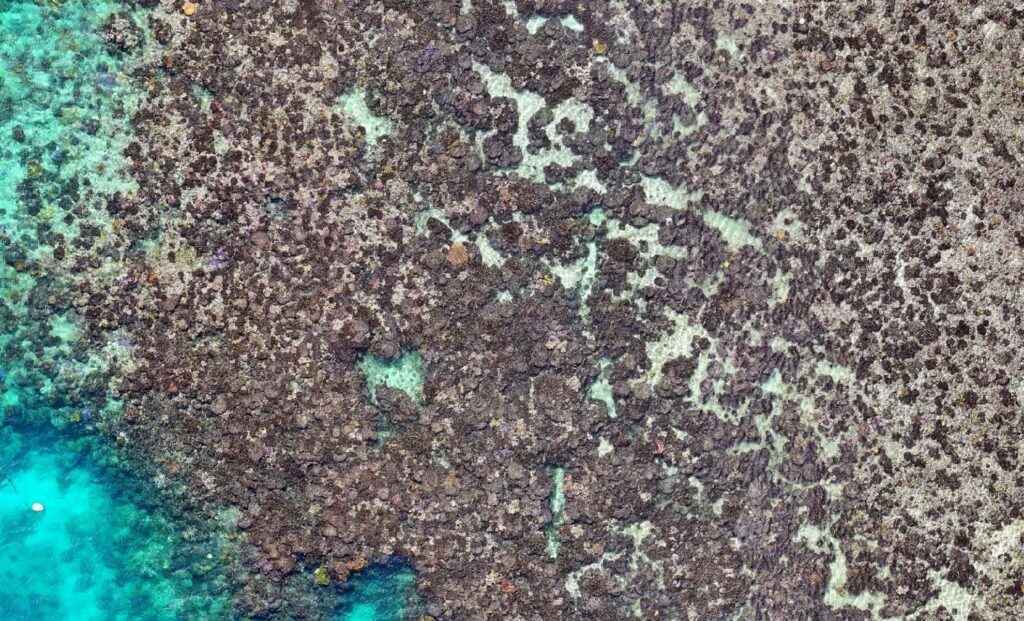
Coral reefs globally, including the iconic Great Barrier Reef, are grappling with severe damage due to recent bleaching events driven by rising ocean temperatures. A 2025 study published in Coral Reefs has highlighted the devastating impact of the 2024 Fourth Global Coral Bleaching Event at Lizard Island, revealing a staggering coral mortality rate of up to 92%. Utilizing drone-derived imagery, the research underscores the urgent need to address climate change to protect these vital marine ecosystems.
The Role of Drone Technology in Coral Research
Central to the success of this groundbreaking study was the use of drone technology, which allowed researchers to capture high-resolution imagery of coral reefs before, during, and after the bleaching event. The drones, specifically DJI Mini 3 Pro and Autel Evo II models, provided unparalleled precision, enabling scientists to document the extent of coral bleaching and assess mortality over expansive areas.
Professor Jane Williamson, a senior author of the study, emphasized the significant advantage of using drone-derived imagery:
“Using drone-derived imagery, we followed the amount of bleached and living coral during and after the bleaching event. This technology lets us upscale the effects of the bleaching event over larger areas but still at high precision.”
Drone technology has proven invaluable in offering a comprehensive and accurate assessment of reef conditions, especially in areas difficult to access by traditional means. This capability to monitor large sections of the reef system at high resolution is crucial for tracking the long-term health of coral ecosystems and identifying those most at risk from climate change.
Unprecedented Coral Mortality Rates
The data from the study is both alarming and sobering. Dr. Vincent Raoult, the lead author of the research, highlighted the severity of the bleaching event:
“This marks one of the highest coral mortality rates ever documented globally.”
The research revealed that coral mortality rates in some areas of Lizard Island surpassed 92%, with certain sections experiencing total collapse.
The implications of this finding are profound, as Lizard Island has long been considered a resilient part of the Great Barrier Reef. Despite facing environmental challenges such as cyclones and Crown-of-Thorns starfish outbreaks, the reef had shown signs of recovery in prior years. However, the 2024 bleaching event proved catastrophic, overwhelming the reef’s ability to recover.
Dr. Raoult noted,
“Despite lower heat stress at Lizard Island compared with other parts of the Great Barrier Reef, the mortality rate is unprecedented.”
This underscores the sensitivity of coral ecosystems to even modest increases in ocean temperature. As global warming continues, coral reefs worldwide will likely face even greater threats, with the potential for irreversible damage if immediate action is not taken.
The Long-Term Threat to Reef Resilience
The findings from this research are particularly concerning given the increasing frequency and intensity of extreme heat events predicted for the near future. Professor Williamson’s statement underscores the urgency of addressing climate change:
“Our results are concerning for coral resilience, considering the increasing frequency and intensity of extreme heat events predicted for the near future, with potentially irreversible consequences for reef ecosystems such as those studied in our Great Barrier Reef.”
Coral reefs are vital to marine biodiversity, supporting a wide range of marine species and providing essential ecosystem services such as coastal protection. The loss of coral cover not only affects marine life but also has significant socioeconomic consequences, particularly for communities reliant on coral reefs for tourism and fishing industries.
With the increasing severity of climate-induced stressors, coral reefs face a real risk of collapse, and the recovery process could take decades, if not longer. The research team is now conducting additional surveys at Lizard Island to track potential recovery over the coming years. These efforts are part of a broader initiative to monitor and protect coral reefs across Australia, including funding from the Australian Museum Lizard Island Critical Grant.
As the world grapples with the challenges of climate change, the insights provided by this study highlight the critical need for immediate and sustained action to safeguard the future of coral reefs and the myriad of life they support.






